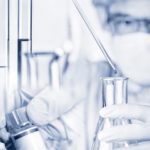Data contained in electronic medical records can help link genetic variants to previously unknown relationships with disease, according to research published at Nature Biotechnology.
Vanderbilt University researchers found links between DNA variants and skin diseases by surveying 13,000 EMRs. First they grouped around 15,000 billing codes from medical records into 1,600 disease categories, then they looked for looked for links to disease in records in which DNA data was available.
Links to skin diseases–non melanoma skin cancer and two forms of skin growths called keratosis, one of which is pre-cancerous–were found. The researchers were able to validate the connection between these conditions and their associated gene variants in other patient data, reports Technology Review.
Looking for various diseases at once might be less biased than research looking at a specific disease, the article says, and it might help researchers understand how single genes might affect multiple characteristics or conditions.
Even larger sets of EMRs could uncover even more rare and complex relationships, the authors said, such a drug side effect that occurs only in one of 10,000 patients.
A discussion paper released by the Institute of Medicine earlier this year proposed argued that the data collected in routine doctor visits could be used to improve care for all by creating a learning healthcare system.
“Currently, the information collected like blood pressure, weight, medications used, disease diagnoses and medical history are used only to inform decisions for that individual patient. We are missing a tremendous opportunity to turn our health care system into one that learns from each care experience and leads to better and more affordable care for all,” Michael D. Murray, the Regenstrief Institute investigator and Purdue University professor who was lead author on the paper, said.
In October, the National Science Foundation awarded grants totaling nearly $900,000 to The University of Texas at Arlington, Southern Methodist University and the University of Texas Southwest Medical Center at Dallas to develop data mining tools for electronic health records.


























